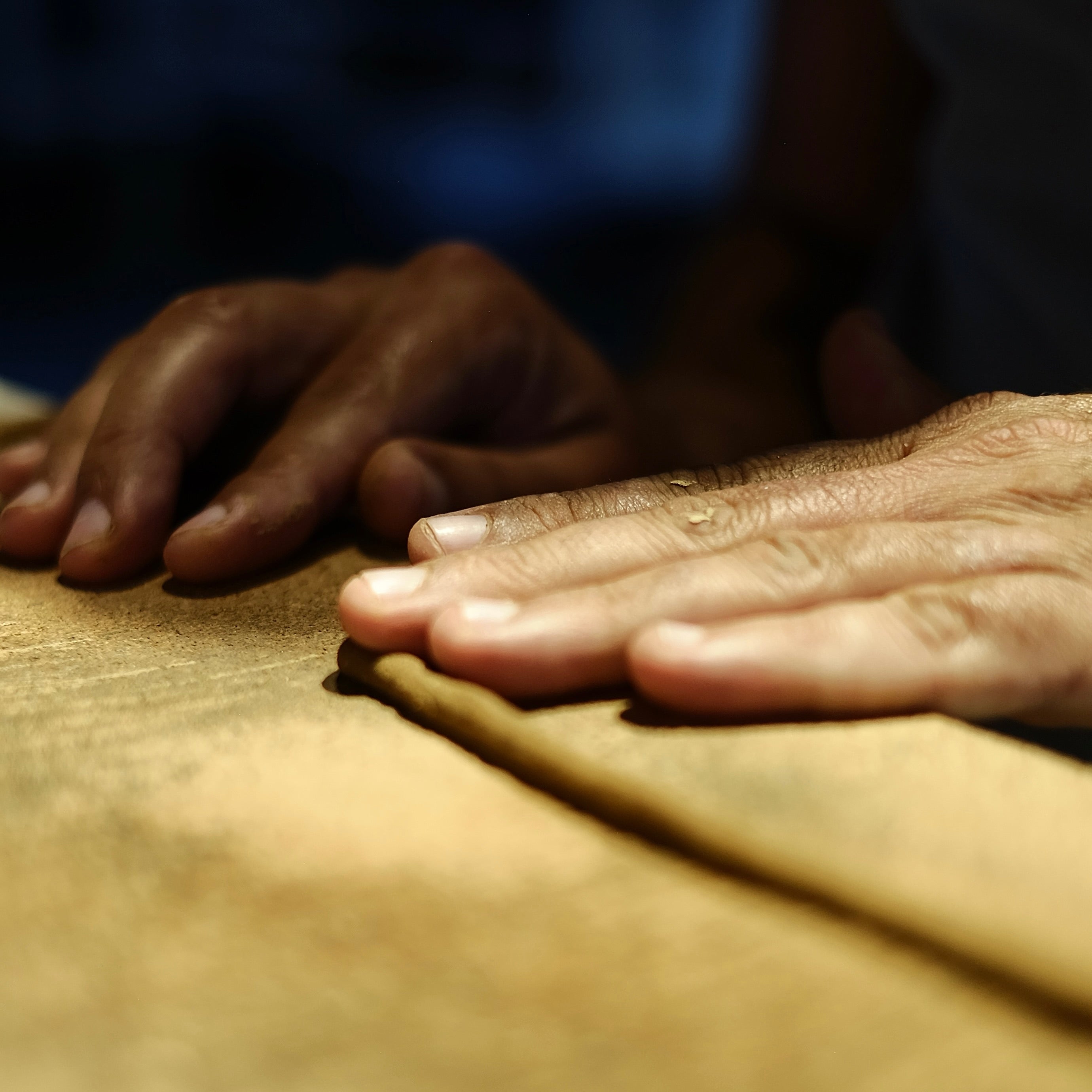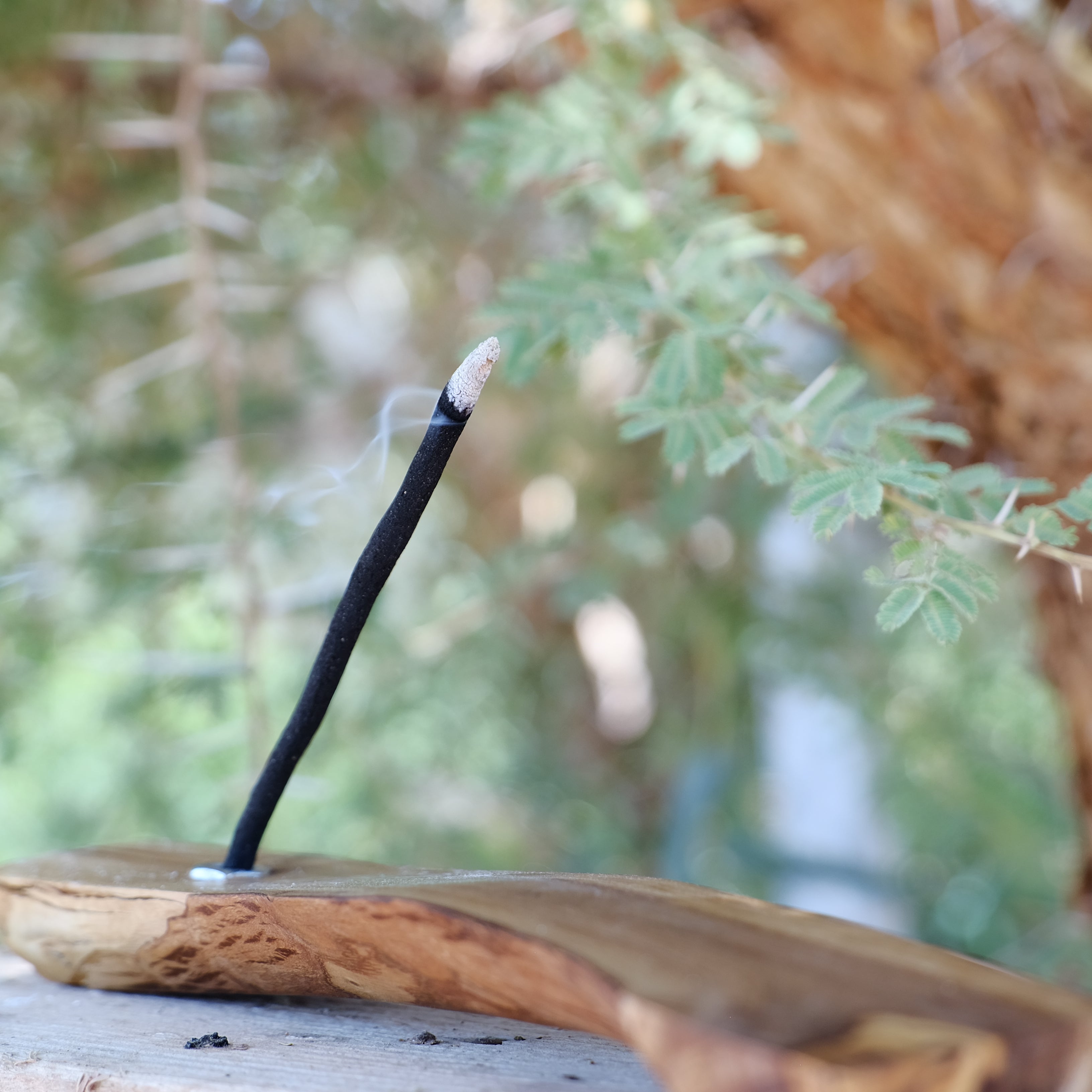Winter has arrived and with it gathering. For me this is a great time to work on new things. In the meantime I want to tell you a little about the history of incense.
From the day man discovered fire, he realized that different plants smelled differently when burned.
Over time man discovered plants that smell good and create a good atmosphere. The relationship between man and aromatic plants was close and the plants occupied an important place in the world of spirituality and religion, a relationship that gradually loosened over the generations.
In every ancient culture there was some local plant that was burned in the holy places that were usually used to make sacrifices, to purify the smells and the atmosphere. The copal with the Aztecs and the Maya. Sage, cedar and sweetgrass among the Lakota in North America. Sandalwood in India and Frankincense and Myrrh (among others) in the Temple and the entire Middle East and Northeast Africa basin. Of course there were other cultures and more aromatic plants.
From then until today, incense is lit for a calm atmosphere, a pleasant smell and harmony, beyond ceremonial uses - religious or not. In the book 'The Scent of Eden' (by Avraham Ofir Shemesh, Bar Ilan Publishing) there is much talk about the roles of different smells in different customs in Judaism - such as the use of myrtle for the Shabbat separation. A fascinating book that I will probably add more to in future posts, but for now I will just point out that in the past there were many uses for aromatic plants, in a variety of forms, reasons, customs and laws.
The smell became a symbol related to ideas, feelings, a space of consciousness, beliefs and worldview, beyond the simple interpretation of the smell - the substance itself. (This is completely material for a whole post later) The sense of smell gives us associations and insights - for example, by the smell we will know if the milk has run out, if the fruit is ripe and when we had a pleasant experience related to jasmine, etc.. and even our sages said that the sense of smell is the only one that nourishes the soul , because it is the only sense that is not damaged by original sin.
All my incenses are handmade, from natural materials only.
I wish everyone a good and benevolent new year, full of blessing, love, good deed doing and good scents.
From the day man discovered fire, he realized that different plants smelled differently when burned.
Over time man discovered plants that smell good and create a good atmosphere. The relationship between man and aromatic plants was close and the plants occupied an important place in the world of spirituality and religion, a relationship that gradually loosened over the generations.
In every ancient culture there was some local plant that was burned in the holy places that were usually used to make sacrifices, to purify the smells and the atmosphere. The copal with the Aztecs and the Maya. Sage, cedar and sweetgrass among the Lakota in North America. Sandalwood in India and Frankincense and Myrrh (among others) in the Temple and the entire Middle East and Northeast Africa basin. Of course there were other cultures and more aromatic plants.
From then until today, incense is lit for a calm atmosphere, a pleasant smell and harmony, beyond ceremonial uses - religious or not. In the book 'The Scent of Eden' (by Avraham Ofir Shemesh, Bar Ilan Publishing) there is much talk about the roles of different smells in different customs in Judaism - such as the use of myrtle for the Shabbat separation. A fascinating book that I will probably add more to in future posts, but for now I will just point out that in the past there were many uses for aromatic plants, in a variety of forms, reasons, customs and laws.
The smell became a symbol related to ideas, feelings, a space of consciousness, beliefs and worldview, beyond the simple interpretation of the smell - the substance itself. (This is completely material for a whole post later) The sense of smell gives us associations and insights - for example, by the smell we will know if the milk has run out, if the fruit is ripe and when we had a pleasant experience related to jasmine, etc.. and even our sages said that the sense of smell is the only one that nourishes the soul , because it is the only sense that is not damaged by original sin.
All my incenses are handmade, from natural materials only.
I wish everyone a good and benevolent new year, full of blessing, love, good deed doing and good scents.



